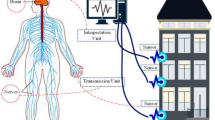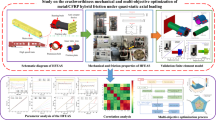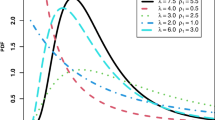Abstract
Ground tests of spacial mechanical products have the characteristics of few test subsamples and expensive test cost, which often appear the cases of zero-failure samples. The classic reliability evaluation methods cannot adapt to the reliability assessment needs of small subsamples and zero-failure samples for high-reliability, long-life spacial complex mechanical products. The characteristics of failure rate functions of typical mechanical products such as mechanical structure, motors, bearings, gears, valves, and so on have been analyzed. Then the reliability evaluation methods of spacial complex mechanical system have been deduced, which has been combined the prior data of Bayesian method. Bayesian posterior distribution function of exponential distribution has been established by the method, which makes use of uniform distribution as a prior distribution, and combines with the convex characteristics of exponential distribution’s failure rate. Bayesian posterior distribution function of exponential distribution has been utilized in products, such as motors, valves, etc., which have characteristics of presenting exponential distribution. The evaluation range of accumulative failure-rate has been reduced by making use of accumulative failure-rate and predicted failure rate of exponential distribution And the weighted least-squares method has been used in parametric fitting based on accumulative failure-rate Then high-precision estimated failure rate of exponential distribution has been obtained. In this paper, the calculation example of compressor filled with spacial propellant has verified the feasibility of the calculation method. The problems of the reliability tests’ few subsamples and evaluating efficiency for expensive, complex spacial mechanical products have been solved effectively by the above proposed method.



Similar content being viewed by others
References
Zhou ZF (2007) Space reliability engineering. China Astronautic Publishing House, Beijing
Guo WC, Liao JS, Xiao MX (2007) Q/W 8B–2007 Assessment methods for spacecraft reliability. China Academy of Space Technology, Beijing
Martz HF, Waller RA (1979) A Bayesian zero-failure (BAZE) reliability demonstration testing procedure. J Qual Technol 11(3):128–138
Mao SS, Wang LL (1996) Reliability analysis for Weibull zero failure data. Chin J Appl Probab Stat 12:95–107
Hai M (2000) The synthesize estimation of reliability parameter of zero-failure data. Math Theory Appl 20(3):36–44
Mao SS, Luo CB (1989) Reliability analysis of zero-failure data. Math Stat Appl Probab 4(4):489–506
Zhang ZH, Jiang LP (2005) Statistical analysis of zero-failure data based on the normal distribution. Chin J Eng Math 22(4):741–744
Liu HT, Zhang ZH (2008) Bayesian reliability analysis of Weibull zero failure data. Syst Eng Theory Pract 28(11):643–648
Wu B, Li MF (2003) Mechanical parts and system reliability model. Chemical Industry Press, Beijing
Zhao Y (2011) Data analysis of reliability. National Defence Industry Press, Beijing
Zhang ZL, Song TL (2006) GJB/Z 299C–2006 reliability prediction handbook for electronic equipment. China Standardization Press, Beijing
Jones TL (2011) Handbook of reliability prediction procedures for mechanical for mechanical equipment. USA Maryland Naval Surface Warefare Center
Acknowledgements
Not applicable.
Funding
Not applicable.
Author information
Authors and Affiliations
Contributions
Not applicable.
Corresponding author
Ethics declarations
Conflict of interest
Not applicable.
Ethical approval
Not applicable.
Informed consent
Not applicable.
Rights and permissions
About this article
Cite this article
Shao, L., Yang, S. & Wang, Y. Reliability Assessment Technology for Spacial Complex Mechanical System. Adv. Astronaut. Sci. Technol. 5, 335–339 (2022). https://doi.org/10.1007/s42423-022-00119-3
Received:
Revised:
Accepted:
Published:
Issue Date:
DOI: https://doi.org/10.1007/s42423-022-00119-3




